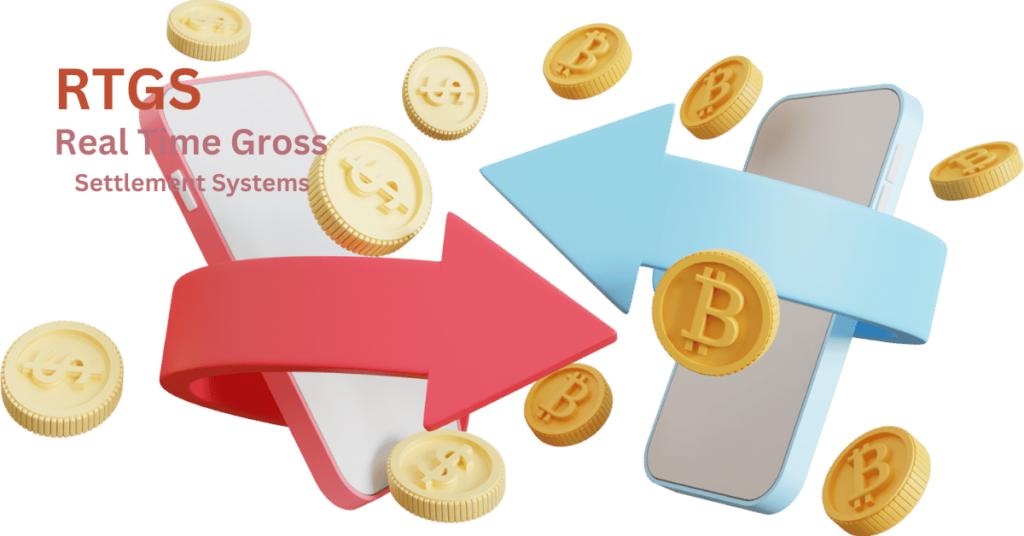Real Time Gross Settlement Systems (RTGS) are mechanisms that enable banks to make large-value repayments to one another in real-time using online telecommunication facilities as well as state-of-the-art computer systems.In the hectic world of financial, where every second matters, Real-Time Gross Settlement (RTGS) emerges as an essential player. This digital settlement system stands as a sign of efficiency, ensuring fast and protected fund transfers. In this post, we dive into “What is RTGS in Banking?” deciphering its interpretation, advantages, and operational intricacies. Join us on a journey through the world of real-time settlements, where purchases occur in the blink of an eye, transforming the landscape of monetary transactions. Discover how RTGS reinvents the way money steps, making this read vital for anyone navigating the dynamic landscape of modern banking.
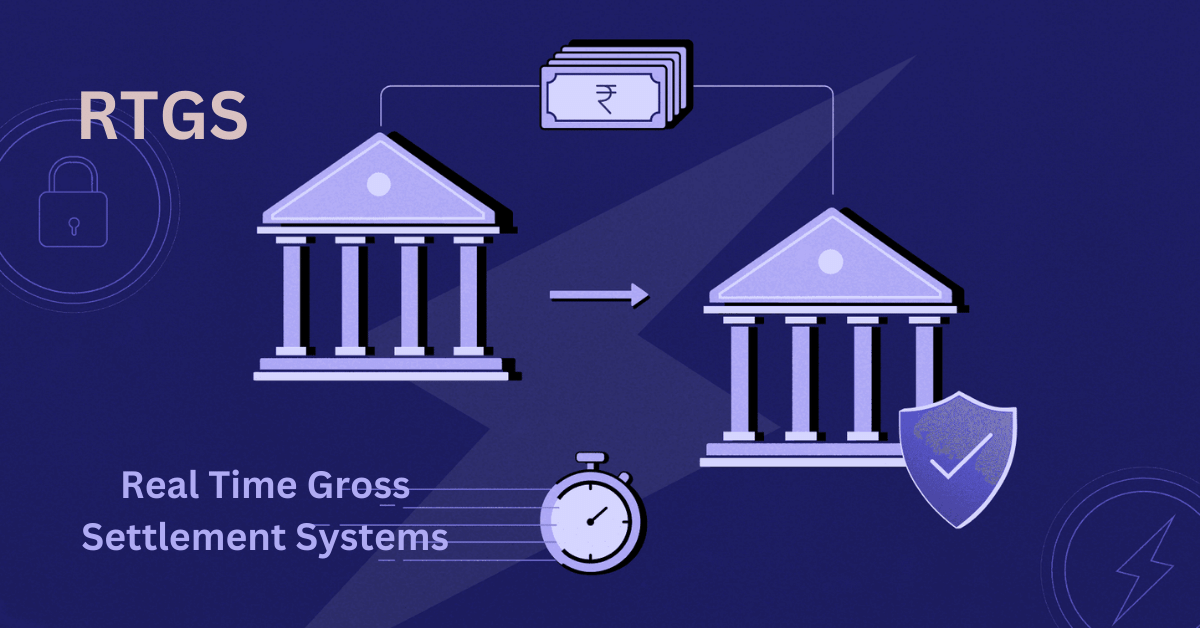 What is RTGS in Banking?
What is RTGS in Banking?
Comprehending RTGS Mechanism
Real-Time Gross Settlement (RTGS) runs at the forefront of electronic funds transfer, supplying a swift and trusted system for financial purchases.
A. How RTGS Works
RTGS features the principle of real-time handling, ensuring that transactions are cleared up quickly as they occur. Unlike traditional negotiation systems that batch deals and process them at certain periods, RTGS operates on a one-to-one basis, working out each purchase individually. This real-time negotiation eliminates the requirement for waiting periods, providing a fast and reliable methods of moving funds between banks.
The process starts with the initiation of a settlement demand by the sender. The RTGS system verifies the accessibility of funds and refines the transaction in real-time, sending a verification to both the sending and getting financial institutions. This instantaneous settlement not only reduces counterparty risk but likewise makes it possible for parties to access the transferred funds without delay.
B. Real-Time vs. Net Settlement
One differentiating function of RTGS is its use of gross settlement rather than internet settlement. In a gross settlement system, each transaction is settled individually without being offset against other transactions. This stands in contrast to net negotiation systems, which accumulate purchases and work out the web amount occasionally.
The benefit of gross settlement depends on its risk reduction capacities. Considering that each transaction is cleared up independently and immediately, there is marginal exposure to counterparty danger. This characteristic makes RTGS a recommended selection for high-value purchases, where the timely and protected negotiation of funds is vital.
Understanding the technicians of RTGS establishes the stage for discovering its benefits, which extend beyond rate and protection to improve the landscape of financial purchases. In the next area, we delve into the advantages that make RTGS a foundation of modern financial.
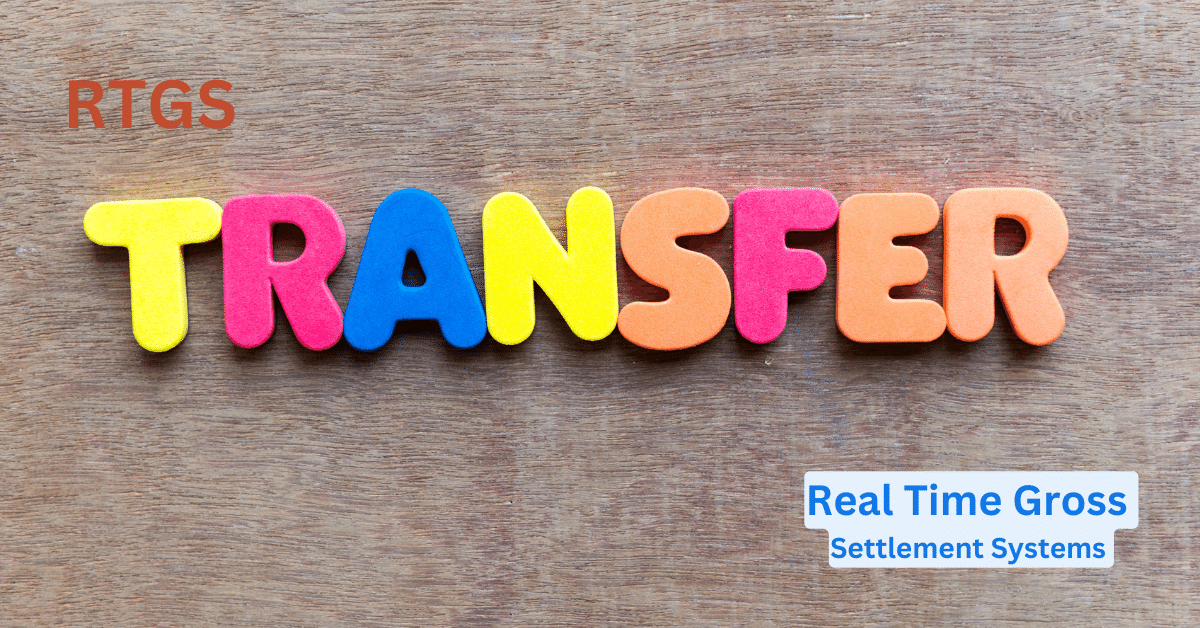 Comparisons with Other Payment Systems
Comparisons with Other Payment Systems
Real-Time Gross Settlement (RTGS) attracts attention in the world of electronic funds transfer, yet a much deeper understanding arises when comparing it to other payment systems, especially Bankers’ Automated Clearing Services (BACS) and other widely-used systems like NEFT and IMPS.
A. RTGS vs. Bankers’ Automated Clearing Services (BACS).
RTGS and BACS serve unique functions within the economic landscape. While RTGS concentrates on real-time settlement, BACS runs as a set processing system, consolidating deals and resolving them occasionally. RTGS’s prompt settlement is suitable for time-sensitive and high-value transactions, making sure quick and safe transfers. On the other hand, BACS is frequently utilized for low-value, routine payments such as salaries and costs settlements.
B. Differences from NEFT and IMPS.
Comparing RTGS to various other prominent systems like National Electronic Funds Transfer (NEFT) and Immediate Payment Service (IMPS) discloses nuanced differences. NEFT, like BACS, operates on a batch handling model with scheduled settlement home windows, providing an extra adaptable however much less immediate transfer choice. RASCALS, on the other hand, gives real-time fund transfers; however, it is made for smaller deals.
Comprehending these comparisons makes it possible for individuals to make educated decisions based on their details deal requirements. RTGS’s real-time and gross negotiation functions make it a favored option for high-value, time-critical purchases, differentiating it from other settlement systems in the marketplace.
Checking out the differences between RTGS and its counterparts not only highlights its one-of-a-kind abilities yet also aids in picking the most fitting system for particular economic needs. As we proceed, we’ll look into the considerable benefits that RTGS brings to the table, solidifying its placement as a crucial player in the digital funds transfer landscape.
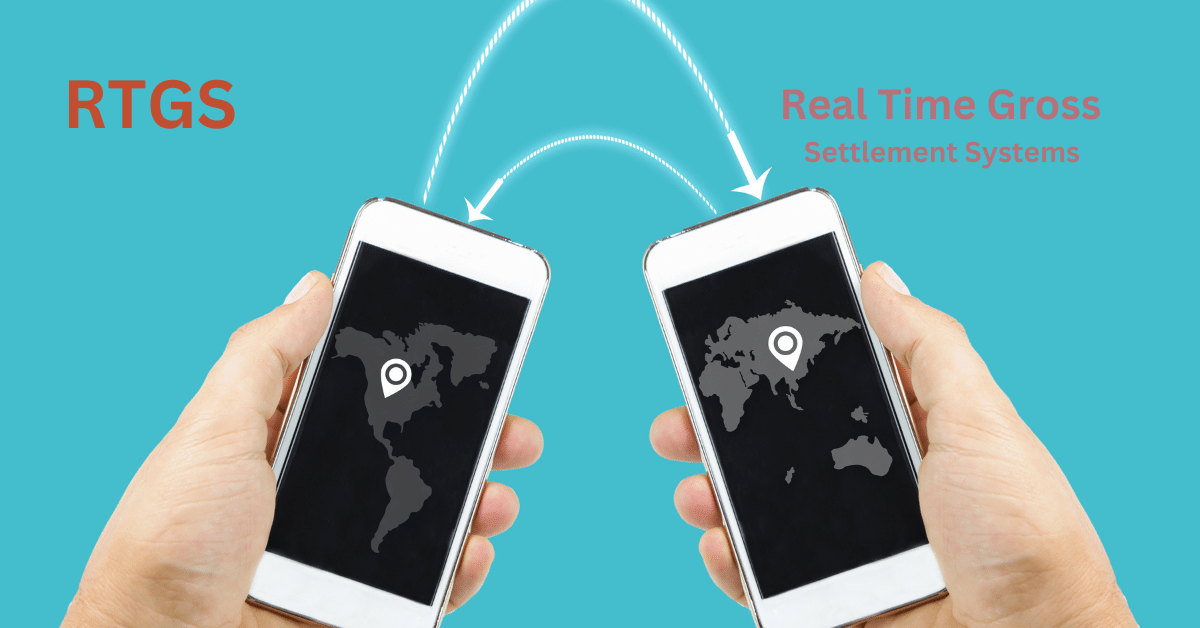 Benefits of RTGS.
Benefits of RTGS.
Real-Time Gross Settlement (RTGS) emerges as a cornerstone on the planet of electronic funds transfer, supplying a range of benefits that raise its significance in modern financial.
A. Advantages and Efficiency.
The main benefit of RTGS lies in its unrivaled rate and performance. The real-time settlement function guarantees that funds are transferred quickly, getting rid of the hold-ups associated with batch processing systems. This effectiveness is particularly crucial in situations where the time level of sensitivity is extremely important, such as high-value organization deals and time-bound investments.
Moreover, RTGS lessens the counterparty threat by clearing up deals on a gross basis. Each purchase is independent, reducing exposure to potential defaults. This risk mitigation attribute is especially important in the context of big financial transactions, where the immediate transfer and negotiation of funds add to the general safety and security of the deal.
B. Real-Time Settlement of Funds.
The hallmark function of RTGS is its ability to settle transactions in real-time. This not only assists in quick fund transfers, but likewise makes it possible for prompt access to the transferred quantity by the recipient. Real-time negotiation is especially useful in scenarios where instant availability of funds is important, such as safety and securities trading, emergency fund transfers, or large commercial purchases.
In addition to speeding things up, the transparency of the real-time settlement process enhances the overall trust and integrity of the system. Both events involved in the purchase obtain prompt verification, reducing unpredictability and supplying a clear and proven document of the fund transfer.
As we dig deeper into the advantages of RTGS, it becomes evident that its performance, danger mitigation, and real-time negotiation features collectively redefine the landscape of digital funds transfer. The following area will further check out the monetary aspects of RTGS, clarifying purchase charges and factors to consider that individuals need to know when involving with this system.
 Charges and Charges in RTGS.
Charges and Charges in RTGS.
While Real-Time Gross Settlement (RTGS) provides unrivaled speed and effectiveness in fund transfers, understanding the linked fees and costs is important for individuals navigating the digital settlement landscape.
A. Exploring RTGS Transaction Fees.
RTGS purchases, provided their real-time nature and high-value emphasis, frequently come with an expense. Banks or financial institutions facilitating the transfers might enforce deal fees to cover the functional and maintenance expenses of the RTGS system. These costs can vary amongst different banks and are normally disclosed in the financial institution’s routine of fees.
It’s essential for users to be aware of the suitable charges before launching an RTGS deal, as these costs can affect the general cost-effectiveness of using RTGS, specifically for huge purchases.
B. Factors Affecting Costs.
A number of elements can affect the fees associated with RTGS deals. These might consist of the purchase quantity, the partnership between the sender and the recipient financial institutions, and any kind of added solution or attribute that the user went with by the user. Some financial institutions might offer advantageous prices for sure account owners or deal types, stressing the importance of getting in touch with the particular financial institution for a thorough understanding of the fee framework.
Users need to additionally take into consideration any kind of intermediary costs that might use if the sender’s and recipient’s financial institutions are different entities. These intermediary costs, if suitable, can impact the overall cost of the RTGS transaction.
As we discover the financial aspects of RTGS, it becomes clear that while the system provides rapid and protected fund transfers, users should be mindful of connected expenses. In the adhering to areas, we will certainly look into the usefulness of launching RTGS transactions, covering every little thing from needed information to purchase timings and restrictions, ensuring a thorough understanding of exactly how to browse this swift and effective electronic repayment system.
 Examples and Applications.
Examples and Applications.
Real-Time Gross Settlement (RTGS) isn’t simply an academic idea; it has substantial applications that display its performance in various real-world circumstances. Exploring these examples provides a practical understanding of just how RTGS is used and its impact on various sectors.
A. Real-Life RTGS Transactions.
One prominent application of RTGS remains in the economic markets, specifically in high-frequency trading (HFT). In this context, where split-second choices can make a substantial difference, the real-time settlement of RTGS makes sure that funds are moved promptly to promote seamless trading tasks. The immediate nature of RTGS transactions is a crucial advantage in the busy and vibrant environment of financial markets.
Another significant application is in massive organization deals. When firms participate in considerable business deals involving substantial amounts of money, RTGS ensures the immediate transfer of funds, reducing the threat related to delayed settlements and providing a degree of monetary assurance to all parties involved.
B. Types of Transactions Processed.
RTGS is not limited to specific markets; its flexibility allows for the processing of numerous sorts of purchases. These can consist of interbank transfers, high-value corporate transactions, and government-related monetary activities. The flexibility of RTGS makes it a preferred choice for entities requiring instant and safe fund transfers, no matter the market.
Recognizing these real-life applications of RTGS emphasizes its relevance in promoting performance, reducing dangers, and adding to the general stability of economic deals. As we dive deeper into the usefulness of RTGS in the succeeding sections, we will certainly check out the details of launching deals, transaction timings, and the vital info needed for a smooth fund transfer experience.
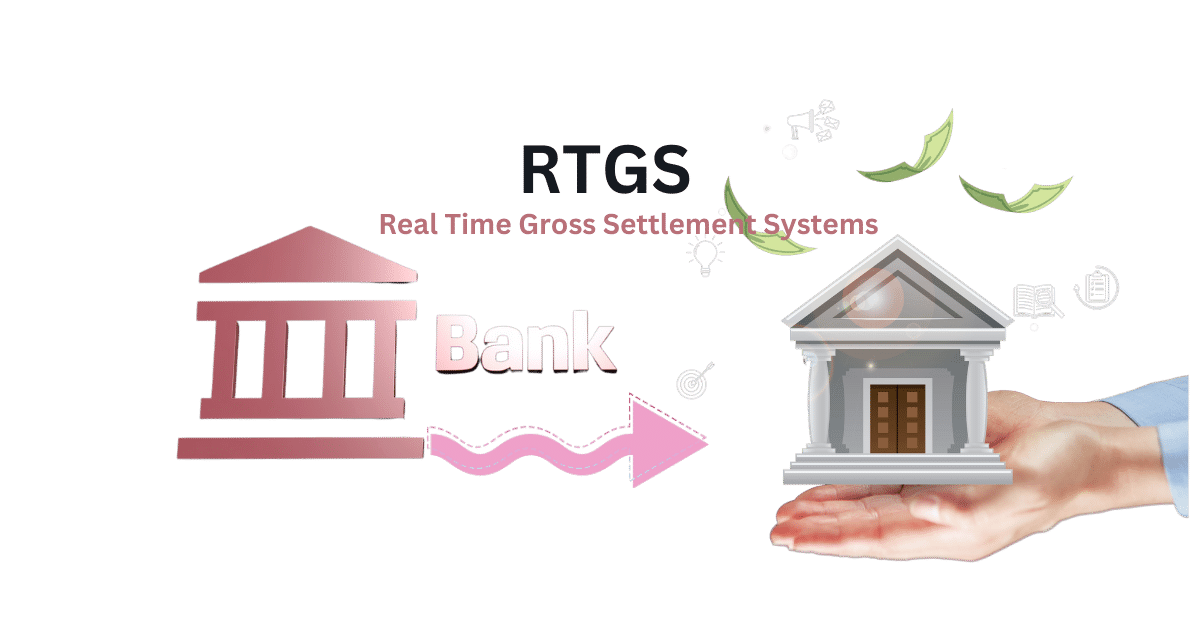 Starting RTGS Transactions.
Starting RTGS Transactions.
Starting an RTGS deal entails a collection of steps and considerations to ensure a smooth and protected fund transfer process. From recognizing the available modes to gathering essential information, customers have to be knowledgeable to take advantage of this real-time settlement system.
A. Modes of Initiating RTGS Transactions in India.
In India, RTGS deals can be launched via different networks, providing flexibility to individuals. Typical modes consist of:.
Electronic Banking Platforms: Most financial institutions offer online platforms that allow users to launch RTGS deals easily. Individuals can log in to their internet banking accounts and follow the proposed steps to input transaction information.
Mobile Banking Applications: With the increase of mobile banking, many banks provide specialized applications that make it possible for individuals to start RTGS deals utilizing their smartphones. This setting includes a layer of accessibility, permitting users to perform deals on the go.
Branch Counters: For those who choose in-person transactions, RTGS deals can be started at the bank’s branch counters. Financial institution team will certainly help in finishing the essential forms and ensuring precise transaction information.
B. Necessary Information for RTGS Transactions.
To initiate an RTGS purchase, users have to offer certain information to ensure precision and efficiency.
This consists of:.
Beneficiary Details: Complete information concerning the recipient, including their name, account number, and financial institution details, is essential for an effective transaction.
Amount to be Transferred: Clearly specifying the total up to be transferred is fundamental. Ascertaining the going-in amount helps avoid errors in the transaction.
Sender’s Account Details: The person starting the RTGS deal requires to give their account information to facilitate the transfer.
Purchase Purpose: Some banks might require customers to specify the objective of the purchase, especially for huge quantities. This information ensures governing compliance.
C. Important Considerations.
Prior to launching an RTGS deal, users need to be aware of specific considerations:.
Deal Timings: RTGS operates within defined time home windows, commonly during financial hours. Individuals should launch deals within these period to guarantee timely handling.
Handling Time: While RTGS transactions are known for their real-time negotiation, variables such as system load and technical issues can impact processing times. Customers must understand any type of potential hold-ups.
Transaction Limits: Banks might impose limitations on the maximum and minimal quantities that can be moved through RTGS. Users ought to validate these restrictions to guarantee compliance.
By recognizing the various settings of initiation, gathering needed details, and taking into consideration essential aspects, users can browse the procedure of starting RTGS with confidence. In the subsequent areas, we will certainly explore particular information such as purchase timings, refining times, and purchase limitations, providing an extensive overview to leveraging RTGS for reliable fund transfers.
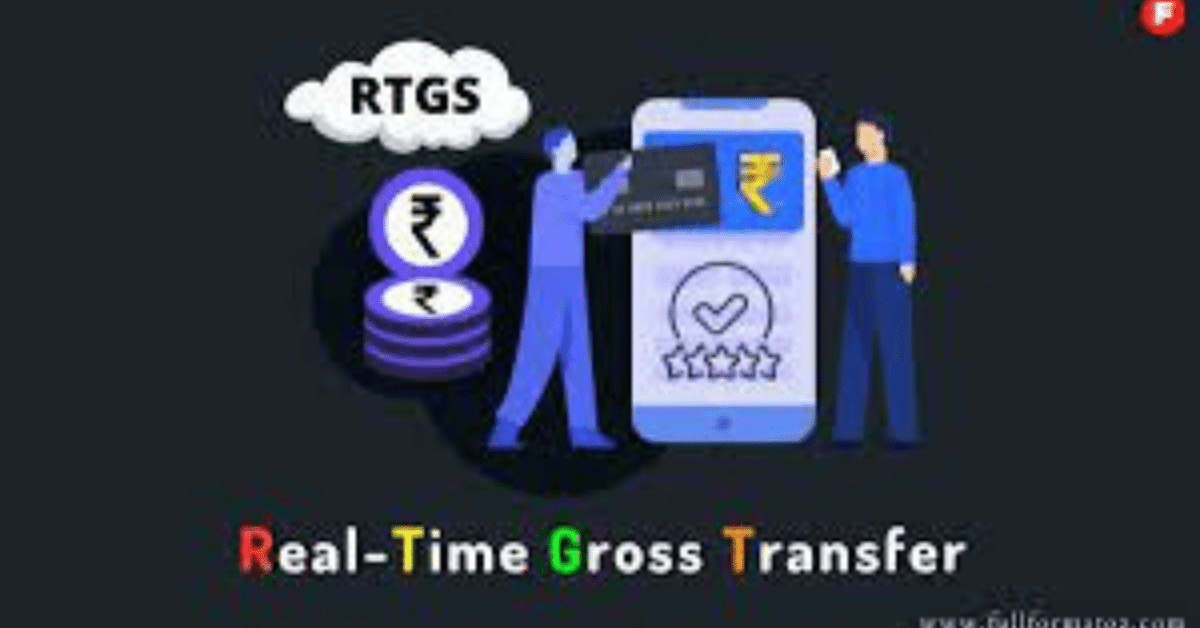 Operational Details.
Operational Details.
Recognizing the operational details of Real-Time Gross Settlement (RTGS) purchases is critical for users looking for to take advantage of this swift and effective digital payment system. From purchase timings to refining times and purchase restrictions, each aspect adds to a smooth fund transfer experience.
A. Transaction timings in India.
RTGS transactions in India run within specific time home windows defined by the Reserve Bank of India (RBI). Since the last update, these timings are generally throughout normal financial hours on weekdays and half-day on Saturdays. Users ought to consult their respective banks for the precise timing details as they may differ. Guaranteeing compliance with these timings is essential to ensure the prompt processing of RTGS transactions.
B. Processing Time for RTGS Funds Transfer.
While RTGS is renowned for its real-time settlement function, users must understand that outside elements can affect processing times. Technical problems, high volumes, or system upkeep can result in periodic delays. It’s recommended for individuals to factor in a slight barrier when thinking about the time sensitivity of their deals.
C. Transaction Limits and Considerations.
Banks usually enforce limitations on the maximum and minimum amounts that can be moved through RTGS. These limits are in place to manage threats and guarantee the smooth functioning of the system. Individuals ought to recognize these limits, which might range banks, and intend their purchases as necessary.
Additionally, individuals ought to think about the connected costs when initiating RTGS purchases. While the rate and security of real-time settlement are considerable benefits, recognizing the price ramifications ensures a well-informed decision-making procedure.
By understanding the operational details of RTGS, individuals can browse the system with confidence, making educated choices concerning when and just how to start purchases. In the adhering to sections, we will address common concerns and factors to consider bordering RTGS, giving an extensive overview to users looking for a deeper understanding of this integral component of contemporary financial.
 Usual Questions Regarding RTGS.
Usual Questions Regarding RTGS.
Real-Time Gross Settlement (RTGS) has come to be a fundamental element of digital funds transfer, triggering various questions from users looking for clarity on its functionality, applicability, and possible nuances. Addressing these typical concerns gives a detailed understanding of RTGS and help individuals in informed choices.
A. Minimum Amount for RTGS Transactions.
Concern: Is there any kind of minimal amount for RTGS transactions?
Response: Yes, financial institutions commonly establish a minimal quantity for RTGS deals. Users ought to consult their respective financial institutions to figure out the certain minimum purchase quantity, as it might vary.
B. Applicability for Individuals vs. Businesses.
Concern: Can people utilize RTGS for personal deals, or is it primarily for organizations?
Response: RTGS is offered for both people and businesses. While it is typically made use of for high-value service transactions, people can also utilize RTGS for personal fund transfers, especially when time sensitivity is essential.
C.Reversal and Cancellation of RTGS Transactions.
Inquiry: Can RTGS transactions be reversed or terminated when started?
Answer: Generally, RTGS deals are irrevocable. When launched, the funds are promptly transferred, and the transaction cannot be turned around. Individuals should work out caution and ensure accuracy when launching RTGS deals.
D. Other Common Queries.
Inquiry: What does RTGS represent?
Action: RTGS indicates Real-Time Gross Settlement. It is a digital settlement system that allows punctual and specific negotiation of monetary deals.
Inquiry: When should I take advantage of RTGS to move cash?
Solution: RTGS is suitable for circumstances where timely and secure fund transfers are important, such as high-value bargains, time-sensitive repayments, and massive industrial transactions.
Question: How does RTGS differ from different other payment systems like NEFT or IMPS?
Response: RTGS varies from systems like National Electronic Funds Transfer (NEFT) and Immediate Payment Service (IMPS) in its real-time and gross arrangement attributes. RTGS makes certain prompt and independent settlement of each acquisition, making it suitable for high-value and time-critical deals.Inquiry: How does RTGS make sure real-time negotiation of funds?
Answer: RTGS attains real-time settlement by processing each deal independently and immediately. This eliminates the demand for batch handling and makes sure that funds are moved and settled in real time.
By dealing with these usual questions, customers can gain a deeper understanding of RTGS, its functional applications, and its implications for both people and services. In the concluding section, we will summarize key takeaways and provide extra resources for those looking for additional details on RTGS.
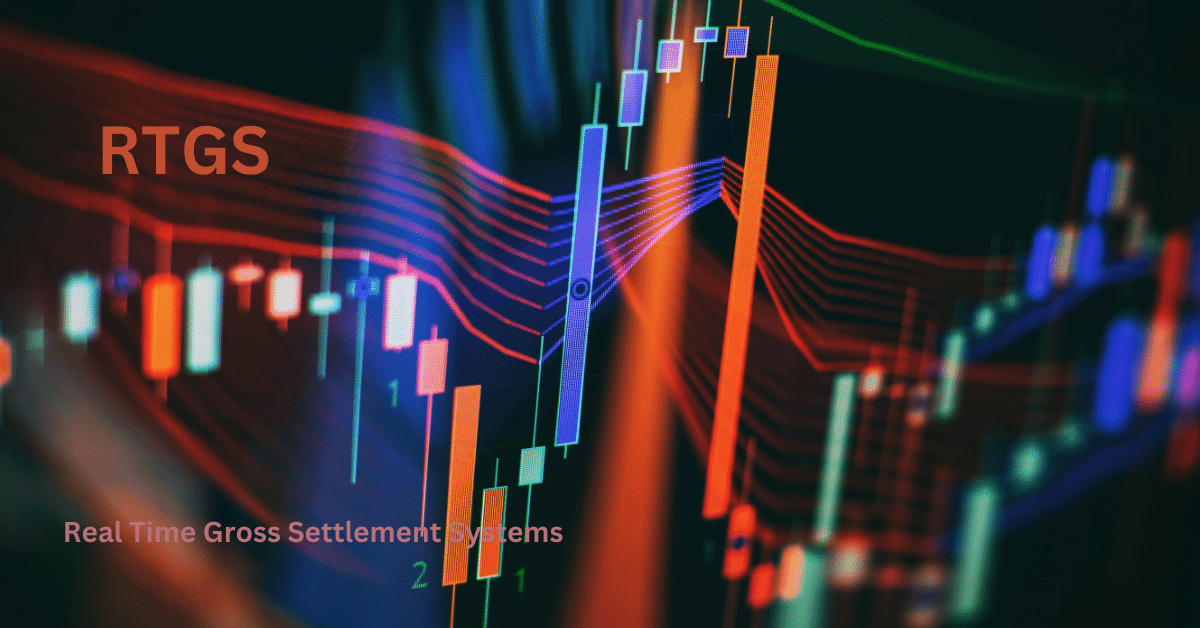 Essential.
Essential.
In the fast-evolving landscape of digital funds transfer, real-time gross settlement (RTGS) emerges as a principal, improving the characteristics of economic purchases. This thorough exploration has illuminated the numerous aspects of RTGS, from its definition and advantages to operational details and common inquiries. As we wrap up, allow’s recap secret takeaways and emphasize the relevance of RTGS in contemporary banking.
Speed and Efficiency: RTGS attracts attention for its real-time negotiation, offering unequaled speed and performance in transferring funds. This is particularly important in situations where time sensitivity is vital.
Threat Mitigation: The use of gross negotiation in RTGS reduces counterparty risk by clearing up each deal independently. This danger mitigation feature is specifically essential for high-value deals.
Convenience in Applications: RTGS locates applications throughout varied industries, including financial markets, large-scale service deals, and government-related monetary tasks. Its versatility makes it a favored selection for entities requiring instant and safe fund transfers.
Operational Details: Users have to recognize operational details such as deal timings, processing times, and deal restrictions when involving RTGS. This understanding guarantees a smooth and educated fund transfer experience.
Usual Questions Clarified: Addressing common questions regarding RTGS, including minimal purchase amounts, applicability for individuals and services, and the finality of deals, enhances customers’ understanding of the system.
Finally, RTGS stands as a dependable and reliable methods of transferring funds in the ever-evolving landscape of modern financial. Whether helping with high-frequency trading in economic markets or allowing quick company purchases, RTGS plays a pivotal role in meeting the demands of a fast-paced monetary globe.
For those seeking better insights, sources, or updates on RTGS, continued exploration with credible financial institutions, regulatory authorities, and monetary publications is recommended. As modern technology and monetary systems breakthrough, staying informed makes sure that individuals can take advantage of the advantages of RTGS to their advantage, contributing to a smooth and protected electronic settlement experience.
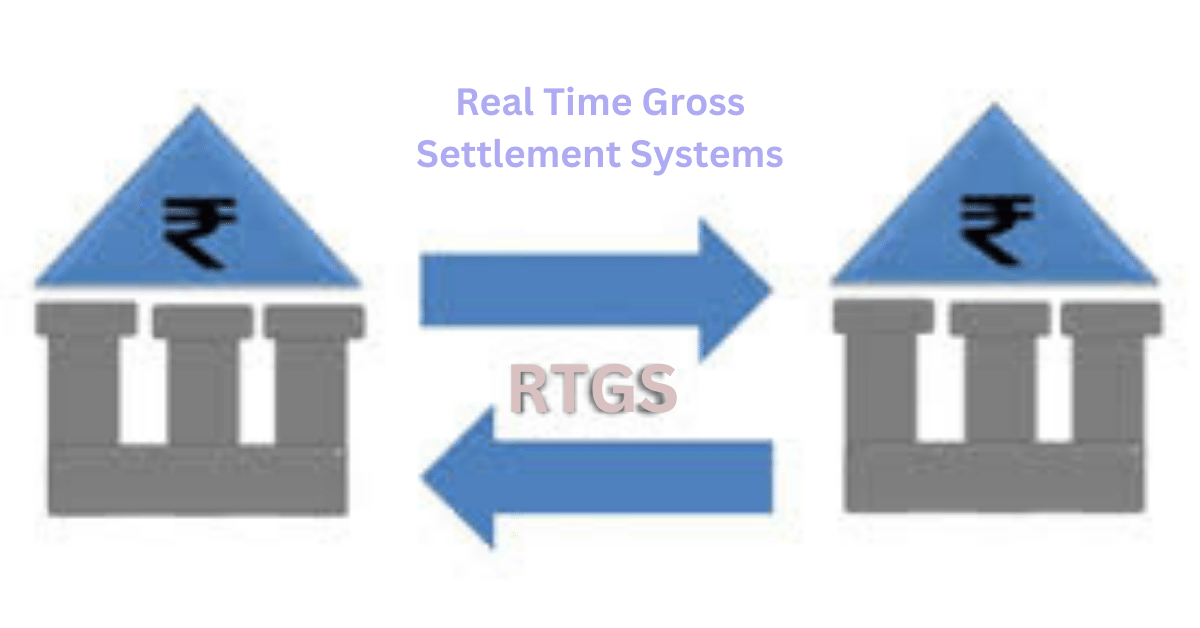 Conclude,.
Conclude,.
Real-Time Gross Settlement (RTGS) stands as a transformative force in the realm of electronic funds transfer, supplying unmatched rate, performance, and protection. Its real-time negotiation attribute makes it a vital tool in high-stakes monetary transactions, ranging from high-frequency trading to massive business negotiations. The threat reduction offered by its gross settlement approach includes a layer of dependability, instilling self-confidence in individuals. As we navigate the details of RTGS, recognizing operational information, transaction timings, and limits ends up being essential for a seamless experience.
By addressing typical inquiries and clarifying key elements, this expedition aims to encourage individuals in leverage RTGS effectively. In a world where time is essential, RTGS arises not equally as a system but as a stimulant for redefining the characteristics of modern-day banking. As innovation continues to develop, staying informed continues to be extremely important, making sure that individuals can harness the complete possibility of RTGS for swift, secure, and reliable digital fund transfers.
